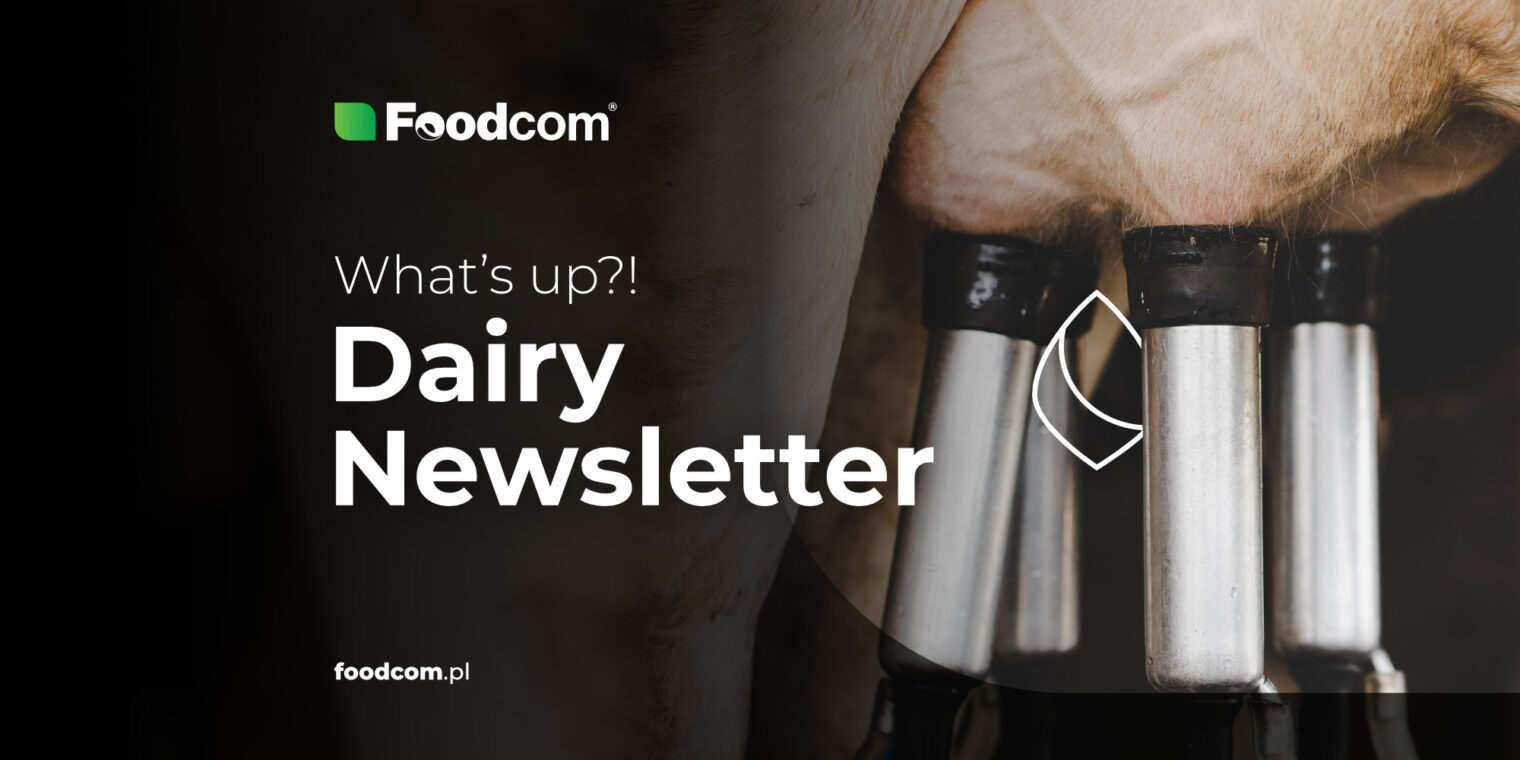Hello Partners!
In terms of planning for next year’s purchases, part of the orders for Q1 2024 have already been made. However, for Q2, there is a noticeable caution among buyers, who are currently holding off on purchasing decisions. They anticipate that prices may be more favorable after the New Year, which encourages them to postpone purchase decisions to a later date. This waiting strategy could significantly impact market dynamics in the coming months.
Let’s check out what else is happening in the dairy market!
Hottest Products of the Week
Milk Powders
In Germany, there was a 2.2% decrease in milk production compared to last year. In France, a 4.7% decrease. Currently, there is less interest in Skimmed Milk Powder (SMP), Buttermilk Powder (BMP), and Full Cream Milk Powder (FCMP) as most buyers have already completed their purchases for prompt, but not all Q1 needs are covered.
Whey Powders
Regarding WPC and WPI, producers claim that their stocks are sold out and they are affected by overselling in previous months.
Currently, the dairy market is balanced with favorable order conditions. While buyers are hesitant to pay higher prices, producers of packaged proteins with sales agreements for finished products must adjust to market realities. These products become particularly significant during the start of the year, a period marked by increased gym attendance and physical activity, often motivated by annual resolutions. This trend could influence price and demand dynamics post-holiday season.
Cheese
In the dairy market, there is a notable decrease in interest in cheese. The number of inquiries for cheese products is declining, suggesting a possible change in consumer preferences or market saturation. Additionally, while the demand for cheese typically rises before the holidays, there is an expectation of reduced prices in January and February, particularly for cheese varieties like Cagliata and Mozzarella, due to decreased interest and lower demand.
Fats
There are fewer inquiries for butter in the dairy market, indicating a decrease in interest. This reduction in inquiries for butter might reflect a shift in consumer preferences or a state of market saturation, contributing to overall changes in the demand for dairy products.
Liquids
Milk liquid prices across Europe have started to fall. It is slowly becoming apparent that Christmas production is ending, and demand has slightly weakened. The unknown remains what will happen after the holidays and whether demand will return.
News
China’s 2023 fresh milk production is projected to hit a record 43 billion liters, marking a 7% increase from last year. Despite this, China continues as the world’s top dairy importer. This surge positions China as the 4th largest global dairy producer, significantly impacting the global dairy market. This highlights the need for resilience and adaptability in the dairy industry, especially in countries like Australia, to cope with potential market shifts.
In China, resellers play a significant role in dairy trade, making up 30% of Global Dairy Trade (GDT) sales. Fonterra China’s engagement with these resellers is key to their market strategy. Despite a decline in China’s whole milk powder imports, Fonterra’s focus on quality maintains its competitive edge. The company sees growing interest in products like cheese and probiotics in the Chinese market.
In Argentina’s upcoming presidential election, farmers are advocating for reduced government controls in agriculture, supporting libertarian candidate Javier Milei. The agriculture sector, crucial to the economy and heavily impacted by a recent drought, seeks more economic freedom and predictability amidst challenges like high inflation and currency controls.
The Utah Department of Agriculture and Food reinstated a West Jordan dairy’s license to sell raw cow’s milk after a suspension in September due to an illness outbreak linked to its milk. The dairy met state requirements for reinstatement, including passing three clean tests. Despite regular testing, the department advises consumers to heat raw milk to 165 degrees Fahrenheit to reduce illness risks.
The Australian Dairy Industry is concerned about reduced milk production due to new basin legislation allowing water buybacks, which affect irrigation. Despite opposition, the legislation was passed, with dairy leaders advocating for an advisory group to mitigate impacts. The industry has already seen a significant decline in farms and production since 2012, and rural communities criticize the government for ignoring socio-economic effects and previous commitments.






